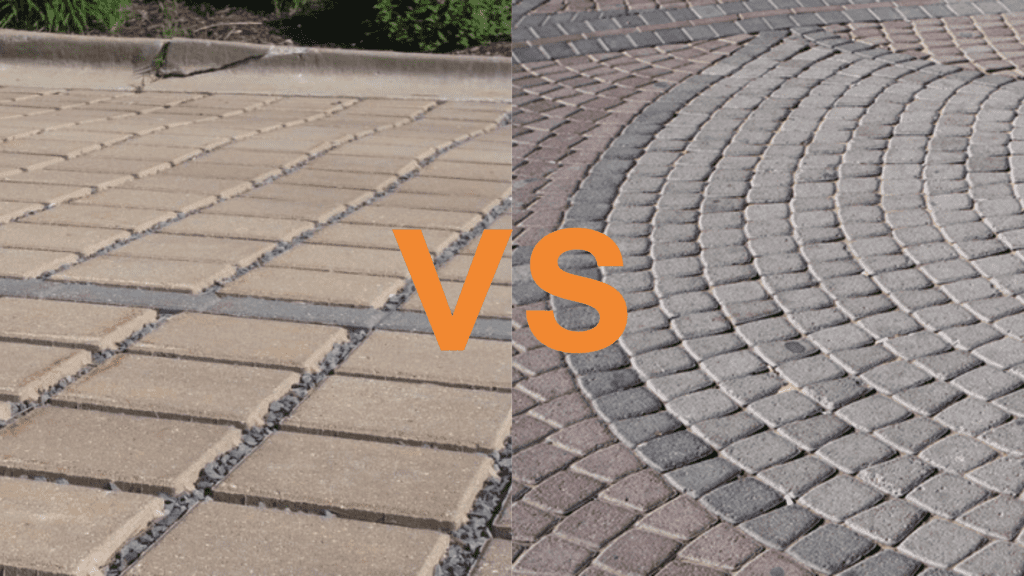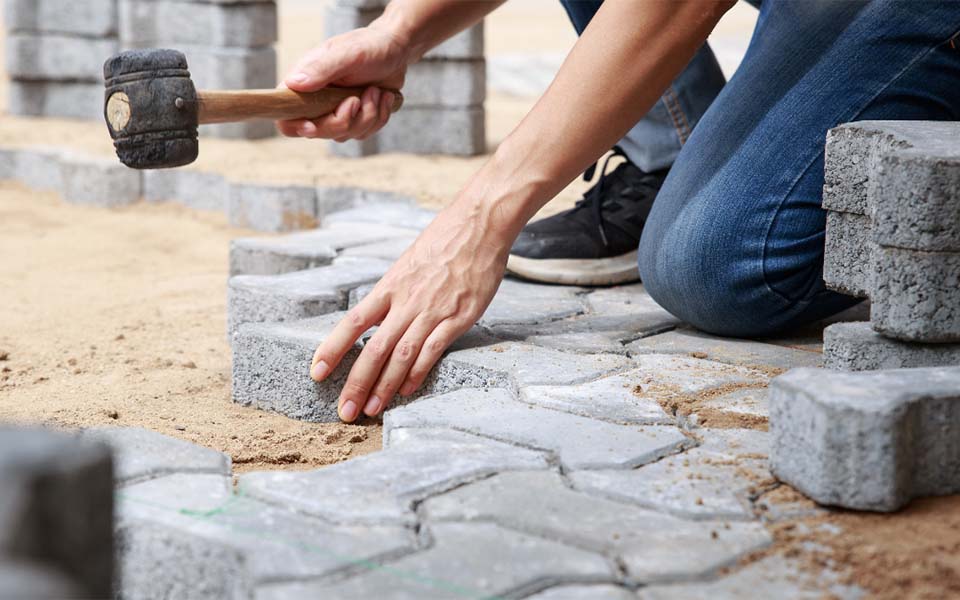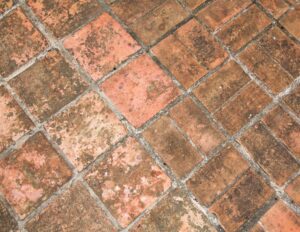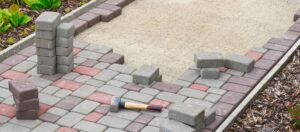Pavers are a wonderful piece of hardscape technology. They are being used for centuries for many cultures around the globe, and for very good reason. Their strength and reliability are unmatched even to this day. So what is the difference between permeable vs non-permeable pavers?
To answer that question, first we have to understand how exactly pavers work, so let’s get right into it.

Jump to:
Permeable and Non-Permeable Pavers
Of course, the main difference is pretty self-explanatory, right?
Permeable pavers allow the water to pass through them, while non-permeable pavers do not.
But what exactly does that mean?
To understand the particular effects of each type of pavers, first we need to have a better idea of how pavers work.
How Pavers Work
Pavers are solid blocks of a sturdy material. The material in question can be, virtually, anything, but the most popular choices are natural stones and concrete.
These blocks are put together, tightly locked between each other using polymeric sand. This combination creates a solid and incredibly resistant structure, capable of withstanding even the heaviest weights.
It does so by distributing the weight evenly across all individual pavers. They can shift around thanks to the malleability provided by the sand instead of resisting the weight head on.
The spaces between each paver that are filled with sand are the secret.
That’s where the water flows, both in the permeable pavers and non-permeable ones. The difference is in how you approach your installation.
The Difference Between Permeable and Non-Permeable Pavers
For a long time, paver installations were exclusively non-permeable, and the debate between permeable vs non-permeable pavers was not even a thing.
However, with modern technology in both paver manufacturing and landscaping tools, permeable pavers started to become a popular and environmental friendly choice.
Proper drainage is a big part of a paver installation, perhaps the biggest one. That is the main difference between permeable and non-permeable pavers.
Permeable pavers are installed in a way that allows the water to flow easily to the ground beneath. This water can be then redirected to the sewage system, drainage system, or even stored and recycled.
Non-permeable pavers, however, avoid water flowing to the ground base. The main body of water stays mostly on the surface and then flows through a regular drainage system.
Differences in Installation

Non-permeable pavers follow the steps for a regular paver installation.
The base consists of gravel and sand. Sand that is also used to fill the joints between the pavers once they are all in place. This space is as tight as possible and filled with sand to the brink.
After that, the pavers are sealed to prevent the absorption of water even further. A bad drainage on a non-permeable paver installation can cause real problems, so this is an aspect that needs to be properly analyzed.
Now, as for a permeable paver installation, things are completely different. First, the base consist of clean rocks of several sizes to allow the water to flow underground.
Pavers have more space between each other, and these spaces are filled with small pebbles to allow the water to flow freely. Soil analysis is a big component of permeable pavers installations, and something that is taken into account when planning for it.
Which is Better?
Between permeable and non-permeable pavers, there’s not an objectively better one, it all depends on what kind of installation do you want.
The good news is that the costs are not much different between a basic installation of the two options, it is really a matter of preference. Although, nowadays, permeable pavers get slightly ahead due to maintenance aspects.
Again, drainage is the most important factor in a paver installation. And having a built-in system designed to take advantage of it gives it an edge over non-permeable pavers.
And, of course, the possibility of storing water for watering plants, washing cards and other activities is a huge differential. If you can invest on a system, we highly recommend you do so.
So Which Should I Choose?
In the permeable vs non-permeable pavers battle, the best judge would be a qualified hardscape professional.
A professional can say which one would be better for your scenario, exactly how much you would spend and how to approach your installation.
In fact, it is highly recommended that you hire a professional company to actually perform the installation for you.
As simple as it is from a DIY perspective, few things give as much headache as an improper paver installation, so you want to make sure you’re having the possible service as possible.
We here at JS Brick have more than 20 years of experience. We have performed installations on hundreds and hundreds of houses, so we know how important proper practices are.
If you happen to around the Sarasota County, in Fl, why not give us a call to help you?
You can contact us any time at +1 941 586 9140 to schedule a free consultation on your project. We would be happy to hear from you.



